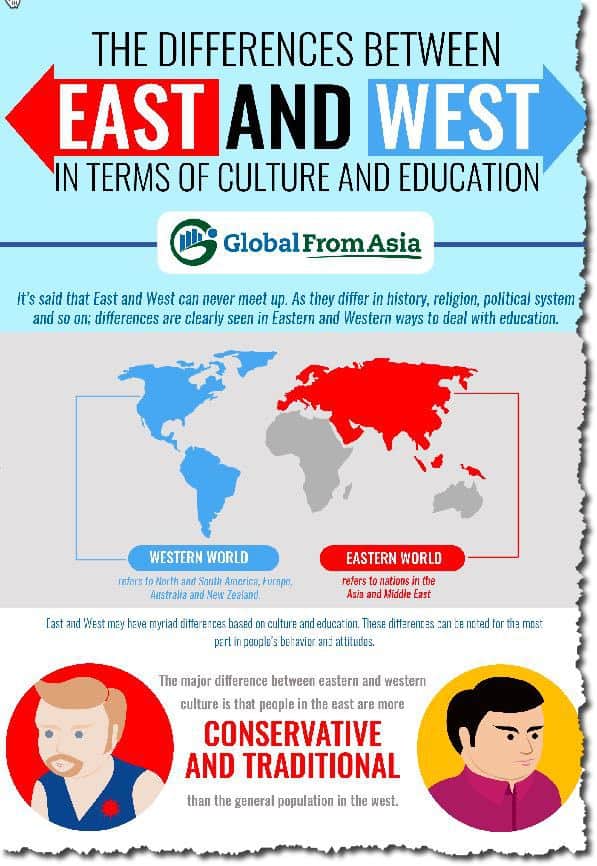The cultures of the East and West have been historically quite different. The East has been generally more conservative and traditional, while the West has been more open-minded and flexible. This can be seen in many aspects of life, from speech to education.

In terms of speech, Westerners are generally more honest than Easterners. This is because Western culture values individualism over harmony. In other words, Westerners would rather speak their mind and risk upsetting others than hold their tongue and keep the peace. Meanwhile, Easterners place a higher value on harmony. They would rather avoid conflict by not saying anything that might upset someone.
When it comes to education, Western systems encourage creative and critical thinking skills. Students are encouraged to ask questions and challenge authority. In contrast, Asian education is much more focused on rote learning and memorization. This difference likely stems from the different values each culture places on individualism and conformity.
The East is more traditional and the West is more modern.
The East is more traditional and the West is more modern. This is because the East has a historical background and is more diverse, while the Western world is modern and not as diverse. Eastern culture also includes Asia and the Middle East, while Western culture includes South and North America, European countries, and other Western nations.
The East is more about relationships and the West is more about individualism.
There are clear differences between East and West when it comes to individualism and collectivism. In the West, individualism is highly valued. This means that people are more likely to prioritize their own needs and goals over the needs of others. On the other hand, collectivism is more prevalent in the East. This means that people are more likely to think of themselves as part of a group and to prioritize the group's needs over their own.
Which is better? That depends on your perspective. Some people might prefer the individualism of the West, feeling that it allows for more personal freedom and self-expression. Others might prefer the collectivism of the East, feeling that it leads to stronger relationships and a greater sense of community. There is no right or wrong answer; it all comes down to what you value most.
The East is more collectivist and the West is more individualist.
It is well-known that compared with Westerners, East Asian people are more collectivist in the sense that their needs and feelings are more closely related to those of their ingroup. Collectivism puts an emphasis on distinguishing between in-groups and out-groups, engaging in cooperative tasks, and focusing on what people have in common.
Because individualism tends to be pronounced in Western societies, with collectivism more frequently characterizing Eastern cultures, it has been suggested that individualism is an oxymoron and collectivism is culturally meaningless. However, years of research (and culture clashes) have shown that East Asians are more collectivistic than their individualistic Western counterparts.
For example, a study by Markus and Kitayama (1991) found that when asked to think about an outgroup, collectivists were more competitive than individualists, even if being so hurt their ingroup. Likewise, Triandis (1967) found unusually high levels of conformity
The East has a stronger sense of community and the West has a stronger sense of individualism.
There are a few key cultural differences between the East and the West that help to explain why the former has a stronger sense of community while the latter has a stronger sense of individualism.
For one, Western cultures are generally more individualistic, meaning that people are more independent in their decision-making and have a stronger sense of self-efficacy. In contrast, Eastern cultures tend to be more collectivistic, with a greater emphasis on common goals and community identity.
This is not to say that there are no individualistic values in Eastern cultures or that all Westerners are completely independent. However, the overall cultural norms do tend to favor community over individuality in the East, while the reverse is true in the West. This difference can help to explain why the East has a stronger sense of community identity and why the West is generally more individualistic.

Comments
Post a Comment